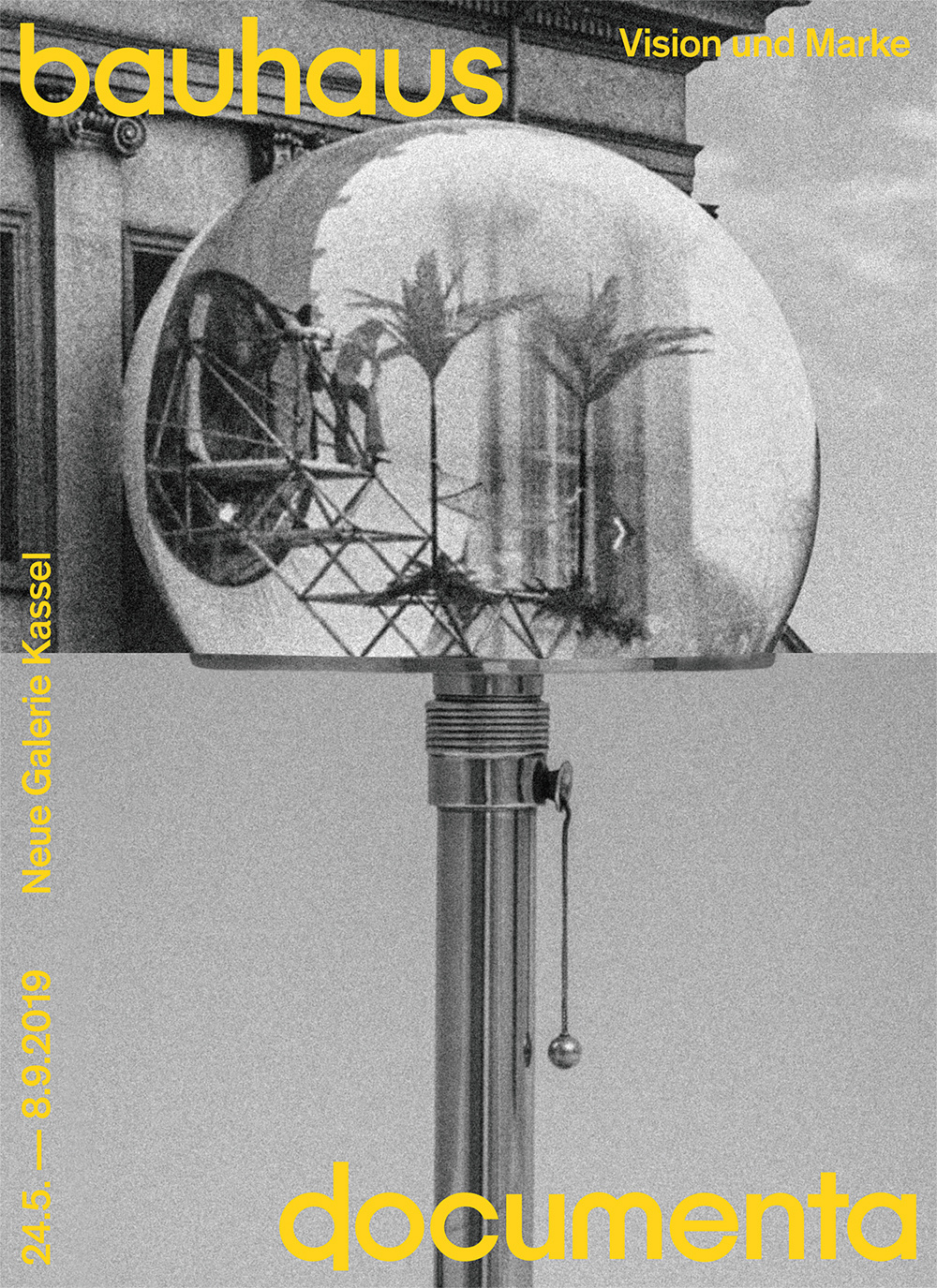"bauhaus | documenta. Vision and Brand"
A project by the documenta archiv and the University of Kassel in cooperation with the Museumslandschaft Hessen Kassel
Friday, May 24 - Sunday, September 8, 2019
Venue: Neue Galerie, Kassel
The exhibition is part of the project "bauhaus | documenta"
You can find the complete accompanying program to the exhibition in our Leporello.

Collage by TheGreenEyl using the photographs of:
Wilhelm Wagenfeld, Bauhaus-Leuchte, metal version, Bauhaus Weimar, 1924, © VG Bild-Kunst, Bonn 2019; Haus-Rucker-Co, Oase Nr. 7, documenta 5, 1972. © Günther Zamp Kelp, Manfred Ortner, VG Bild-Kunst, Bonn 2019 (for Klaus Pinter); Photo: Carl Eberth © documenta archiv.
Bauhaus and documenta are two globally successful cultural brands that stand for a cosmopolitan, innovative and modern Germany.
Both were created against the backdrop of ruptures in civilization, and both exemplify the idea of the emancipative power of art and culture, which enriches the lives of the individual, reflect social coexistence and promote social progress.
While Bauhaus aimed to confront the crisis of industrialization and the damages caused by the First World War through the applied design of objects, spaces and buildings; documenta took up the romantic idea of the engagement with fine art, through which people should become responsible citizens again.
Although subject of many changes, these aspirations have survived to this day and still shape the perception and self-image of both brands - in their motifs, their strategies and their successes. Although this happens quite contradictorily: on the one hand, the engagement with art and culture is assumed as an unquestionable value, on the other hand, there is a suspicion of a didactic mediation that diminishes the works or empties them to consumer goods. If, on the one hand, the significance of large cultural enterprises is regarded as questionable in principle, on the other hand one likes to adorn oneself with them.
The exhibition bauhaus | documenta. Vision and Brand, takes the one hundredth anniversary of Bauhaus as an opportunity to view both cultural brands parallel and become a mirror of the role and function that art and culture play in a society. Divided into seven parts, the exhibition reflects on fundamental questions like:
1. What is the vision?
2. How can a brand be established?
3. How can its success be measured?
4. What should occur?
5. Whom should be reached?
6. Whom does it interest?
7. Where can it be found in everyday life?
Curators: Philipp Oswalt and Daniel Tyradellis
